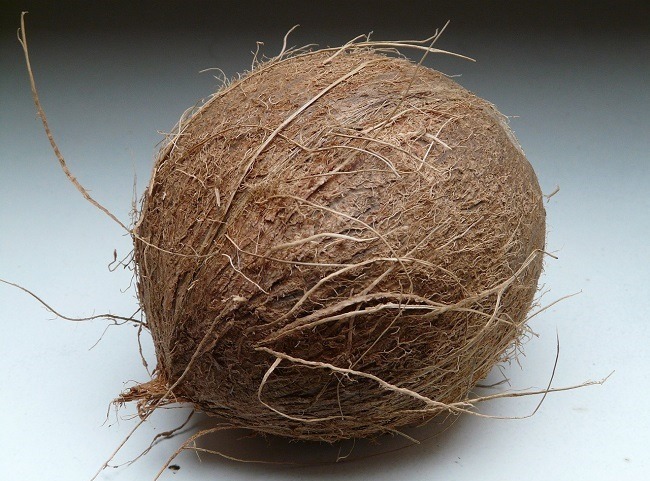Coconut holds immense importance in Hindu poojas, festivals, marriage ceremonies, and various other spiritual and religious events. It is regarded as a divine fruit, often referred to as Shri Phal or God’s fruit. The offering of a coconut plays a crucial role in these traditions, and its significance cannot be overlooked. Let’s explore the reasons behind the importance of coconut in Hindu rituals.
Coconut as a Symbol of Divine Fruit and Sacredness
Coconut is considered a divine fruit in Hinduism. It is revered for its unique characteristics and symbolism. The coconut’s tough outer shell represents protection and resilience, while its inner fruit and water signify purity and nourishment. The act of offering a coconut is a gesture of reverence and devotion to the divine.
Representation of Deities: The Coconut and the Hindu Trinity
In Hindu mythology, the coconut is associated with the Hindu trinity of Brahma (the creator), Vishnu (the protector), and Mahesh (Shiva, the destroyer). Each part of the coconut symbolizes one of these deities. The outer shell represents Lord Brahma, the creator of the universe. The inner fruit represents Lord Vishnu, the preserver of life. The water inside the coconut represents Lord Shiva, the destroyer and transformer. By offering a coconut, devotees seek the blessings and grace of these divine forces.
The Coconut: Depicting Gods and Goddesses in Hindu Mythology
The coconut holds a special place in Hindu mythology as it is believed to embody various gods and goddesses. The three distinct marks or dots found on a coconut are associated with Lord Shiva, representing his three eyes. In some interpretations, the kernel or white flesh of the coconut represents Devi Parvati, the water symbolizes the sacred Ganga River, and the brown shell represents Lord Kartikeya. The coconut thus becomes a physical representation of these revered divine beings.
Breaking the Ego: The Symbolic Meaning of Breaking a Coconut
One of the most significant aspects of offering a coconut in Hindu rituals is the act of breaking it. The breaking of the coconut symbolizes breaking the ego and surrendering oneself to the divine. It signifies humility and the willingness to let go of personal desires and attachments. By breaking the coconut, devotees express their devotion, gratitude, and willingness to offer themselves completely to the divine presence.
Coconut: A Vital Component of Hindu Worship and Rituals
Coconut is an indispensable part of Hindu worship and rituals. It finds a place of importance in various ceremonies, including poojas, weddings, temple consecrations, and other auspicious occasions. The coconut is placed on the Kalash, a pot filled with water that represents the divine presence during poojas. It is also a prominent feature on the Archana Thaal, a platter containing offerings to the deities in temples. Without the presence of a coconut, these rituals are considered incomplete.
Purification and Protection: Coconut Water in Hinduism
Coconut water holds significant symbolic and practical value in Hinduism. It is believed that coconut water possesses cleansing properties. It is considered to have the ability to purify spaces from negative energies and architectural flaws. In many Hindu rituals, coconut water is sprinkled or used in ablutions to sanctify the surroundings and create a sacred atmosphere. It is also believed to offer protection and ward off evil influences.
Surrender and Peace: Symbolism Behind Offering a Coconut
The act of offering a coconut in Hindu rituals carries a deeper meaning of surrender and seeking inner peace. The coconut represents the human head, with its fiber resembling hair, the shell representing the skull, the water symbolizing blood, and the flesh representing the brain. By offering a coconut, devotees symbolically surrender their minds, egos, and desires to the divine. It is an expression of letting go of worldly attachments and seeking spiritual enlightenment and tranquility.
Health Benefits and Availability of Coconuts in Hindu Culture
Aside from its spiritual significance, coconuts offer numerous health benefits and are readily available in Hindu culture. Coconut water is known for its hydrating properties and is considered a natural electrolyte-rich drink. The flesh of the coconut is used in various culinary preparations and is a source of essential nutrients. Additionally, coconut oil is highly valued for its medicinal properties and is widely used in Ayurvedic treatments.
In conclusion, the coconut holds a profound significance in Hindu rituals and offerings. It is regarded as a divine fruit, representing the Hindu trinity and embodying various gods and goddesses. The act of breaking a coconut signifies surrender, humility, and the willingness to offer oneself to the divine. Coconut water is believed to purify and protect, while the fruit itself provides nourishment and health benefits. Overall, the coconut’s presence in Hindu rituals and its symbolism play a vital role in fostering a deep connection between devotees and the divine realm.


























































